Letter to the next Prime Minister
The letter below sets out our key asks for the next government.
by Leslie Patterson
At the very beginning of the 1970s I was lucky enough to attend a playschool, at a time when there was very little early years provision available. It was a very informal provision run by a lovely lady from her house around the corner from where I lived but, despite its informality, it had a lasting impact on me. Although I moved away from that area shortly afterwards, I still have strong memories of the experiences I had there. I remember playing in the back room full of toys and particularly loved the fuzzy felts. I remember having juice and biscuits in the front room while watching Playschool on the black and white TV. However, most of all, I remember the amount of time out and about in the local area. We went for walks, spent time on the beach and in the local parks. My favourite trips out were to the local library where we could look at the books and then settle down for a story. I wonder just how much these lovely warm memories have contributed to my love of books and reading as an adult. I believe these early first-hand experiences had a very significant impact on my development and contributed greatly to my growing understanding of the world around me and my increasing vocabulary. In terms of language development, true understanding of words and concepts as well as learning the words. Living on the north-east coast and going to the beach in all seasons certainly helped us to understand what a sea fret was and what it meant to be chilled to the bone!
My experience at playschool was set in the context of a busy family life with a wide range of opportunities to experience life to the full. My parents ran a small hotel and, from an early age, my sister and I were encouraged to get involved in the catering and running of the business. My favourite job was polishing the cutlery for dinner service. We also had the opportunity to meet people from all walks of life and were learning lots of lessons about hospitality and sociability without even realising it. We had very involved grandparents who took us out and with whom we would go and stay. One set of grandparents drove and took us all over the place and on holidays. The other set did not drive and introduced us to the world of trains and double decker buses and city living, all very exciting.
It was the combination of my home life and pre-school experience that set me on the road to being an enthusiastic life-long learner. As you can see, I certainly had a lot to draw from and had made positive connections with many people and places. It is this kind of life and experiences that many of our youngest children have not had the opportunity to enjoy to the full over the last two years because of the pandemic. Although it is likely that there are many children who have thrived on spending more time at home with their family, it is nevertheless true that opportunities previous generations had have probably been extremely limited for the current cohort of pre-schoolers.
While on one level I think we need to accept that the experience of this generation is different and not necessarily better or worse, on another level I think that, as things are opening up, we need to ensure that we are thinking about providing our EYFS children with the strong learning opportunities that come from exploring their locality and the wider world around them. The most obvious benefit of doing this is in the area of Knowledge and Understanding of the World but exploring the world around us is a holistic learning experience and, in my experience, offers chances to progress in all areas of learning and development. It offers rich potential to develop the Characteristics of Effective Learning and Personal, Social and Emotional Development. Neither should the power of developing communication skills in resonant real-life contexts be underestimated.
With these thoughts in mind, my colleague Caroline Eaton and I have been developing training to support settings and practitioners to both plan and carry out learning experiences in their own immediate locality. The training will be a blend of theory and very practical ideas around planning, preparing and delivering activities both in and out of setting. This training could be delivered as a course, a project in a specific locality, for large groups or small. Our first delivery is a two-part webinar which can be booked through the early education website.
Webinar – Using the locality and community to extend language and learning (a two-part course on 23 May and 6 June)
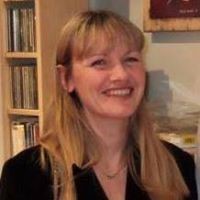
The letter below sets out our key asks for the next government.
Clare Devlin, Early Education Associate What aspects of physical development should we focus on within the Early Years Foundation Stage (EYFS) and other early years
by Anni McTavish What are treasure baskets? “Treasure Baskets” are a collection of ordinary household objects, that are chosen to offer variety and fascination for
by Debi Keyte- Hartland The term “Loose Parts” was coined by Simon Nicholson, a British architect and designer whose parents were artists Barbara Hepworth and
by Helen J Williams Early mathematics is essential for children’s full development, it is also predictive of later, wider achievement. Early mathematical learning is critical
by Kathryn Solly The benefits of outdoor learning in the early years have now been firmly recognised for both educators and young children’s learning and
What is continuous provision in EYFS? By Ben White Continuous provision in EYFS refers to the resources and learning opportunities accessible to children all of
The Families’ Access to Nature Project was undertaken by the Froebel Trust and Early Education between October 2021 and January 2022. Children, their parents, and
Guest blog by Sara Knight Why are opportunities for risk and adventure essential for normal development in the early years? Tim Gill (2007) identifies four
Guest blog from Dr Elizabeth Byrne, University of Cambridge Most educators will be aware that “what works” in support of children’s learning and development is
Why go outside? Big movers Have you ever been in an open space with young children? The first thing they want to do is to
Taking care of a baby is tiring work, with a lot of feeding, nappies and broken nights. When you are exhausted, it can be harder
Here are some links to resources to support your play. Loose parts play tookit is such a rich and comprehensive free publication from Inspiring Scotland to
When writing our January Early Years Teaching News, I tweeted a survey to ask if practitioners and leaders would like information about ICT or outside
This content by Jan White comes from our out of print leaflet “The Sky is the Limit: Babies and Toddlers Outdoors: developing thinking, provision and practice”
Healthy settling for high wellbeing How can we best help children feel at ease so that they are secure and settled in their new provision?
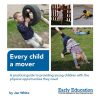



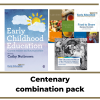
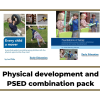
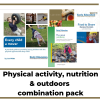
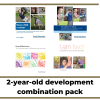
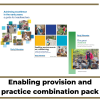
Early Education
2 Victoria Square
St Albans
AL1 3TF
T: 01727 884925
E: office@early-education.org.uk